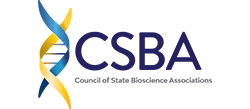By Sheran Brown
•
April 10, 2025
Georgia Life Sciences Selects Fulton County Schools Innovation Academy Student as the 2025 Georgia BioGENEius Winner Sandy Springs & Rockmart Teens Take Top Honors in Statewide Science Competition Atlanta, GA (April 4, 2025) – Georgia Life Sciences today named Bhavya Alapati , a junior at Fulton County Schools Innovation Academy, as the winner of the 2025 Georgia BioGENEius Challenge, the premier competition for high school students that recognizes outstanding research and innovation in the biotechnology field. Eleven students from across Georgia competed for this year’s title and cash prize. Bhavya’s project investigated a novel method of identifying strokes using a device she created called SpectroStroke, a small-scale spectrophotometer, to detect homocysteine, an amino acid product that is associated with stroke. Bhavya identified the ability of homocysteine to be detected using Ellman’s reagent, which reacts with the free sulfhydryl group on the molecule to produce a yellow color. Bhavya created a wearable patch that contains the Ellman’s reagent. Then, she designed the SpectroStroke to be able to detect the color change when the patch is exposed to elevated levels of homocysteine. Bhavya’s SpectroStroke can detect normal levels of homocysteine up to extremely high levels seen in those experiencing a stroke. The ability to detect a stroke earlier would reduce damage and long-term effects of the condition. A future iteration of the SpectroStroke would include real-time monitoring capabilities to help track changing homocysteine levels. "Supporting and celebrating outstanding research and innovation in biotechnology is vital for the future of science and medicine. The Georgia BioGENEius Challenge not only encourages the brightest young minds to explore their potential but also nurtures the next generation of leaders who will drive groundbreaking advancements in biotechnology,” said Georgia Life Sciences President and CEO Maria Thacker-Goethe. “By recognizing and empowering these students, we are helping to shape a future where innovation thrives and the possibilities for improving lives are endless. Well done, Bhavya!” Georgia Life Sciences also congratulates the Georgia BioGENEius runner-up, Shelby Kendrick , who is a senior at Paulding County High School in Dallas, GA. Shelby’s research investigated the ability of Aspergillus terreus, a fungus found in soil, to degrade pre-treated polypropylene plastic (PP). This fungus has been discovered to produce high concentrations of degrading enzymes and raises the moisture level of its substrate. Shelby isolated the fungus from soil samples and confirmed the species using PCR amplification and DNA barcoding. Samples of polypropylene were pre-treated with 75% ethanol and UV exposure, then placed in a liquid culture of A. terreus in Minimal Salt Medium (MSM) media, and the culture was incubated for 23 days. At the end of the trial period, PP samples were analyzed using Scanning Electron Microscopy. These samples showed changes in their surface layer, indicating evidence of biodegradation. Polypropylene plastic is found in household items such as plastic cups and is a known problem in the environment due to its inability to degrade. Shelby’s future research on the use of A. terreus for biodegradation includes optimizing degradation conditions and assessing methods of application in the environment. Judging the 2025 Georgia BioGENEius Challenge were Ralph L. Cordell, CDC, and Alex Harvey, ViaMune. Cash prizes were awarded to Bhavya and Shelby. # # # About Georgia Life Sciences Georgia Life Sciences, founded in 1989, is a non-profit, membership-based organization that promotes the interests and growth of the life sciences industry. It is the state’s largest and most influential life sciences advocacy and business leadership organization working to improve access to innovative discoveries that have lifesaving impact. The association connects business, academia, government, and other allied entities involved in the application of life sciences products to fuel growth and collaboration through policy development, community programs, national industry initiatives, and a portfolio of educational and networking events. Learn more at galifesciences.org.






